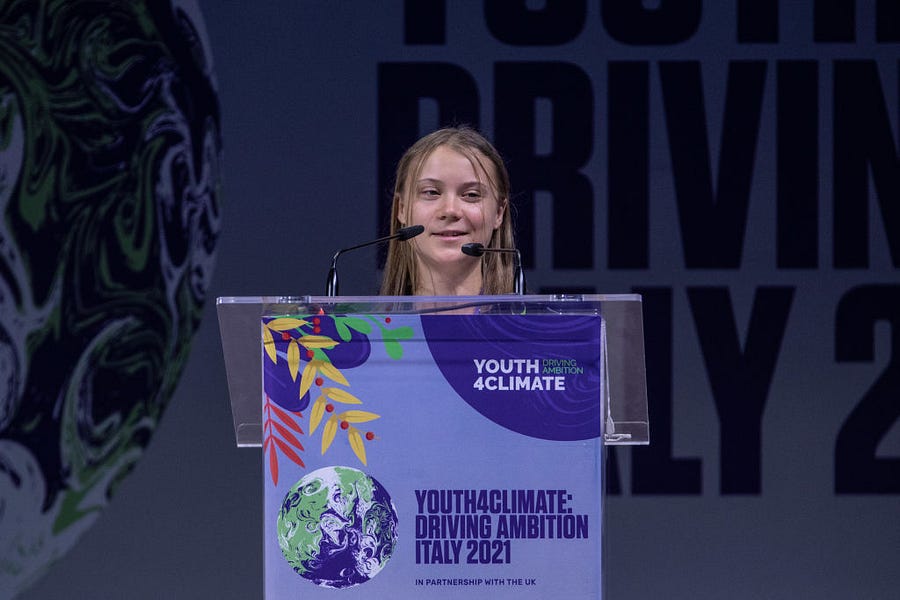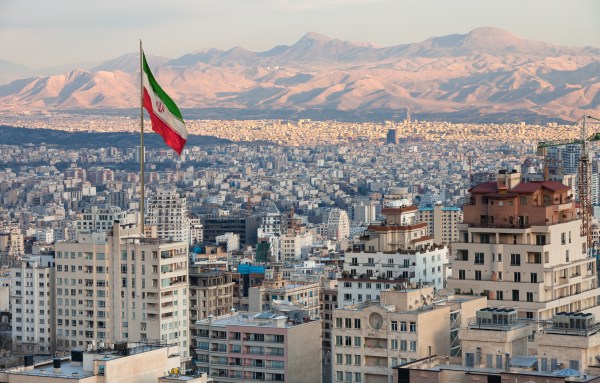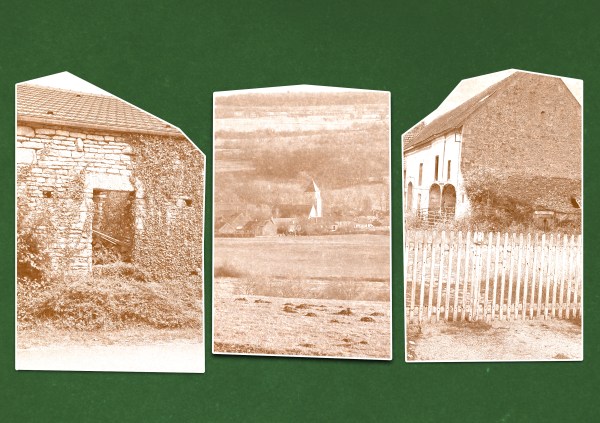Last week was a big week for the Fridays For Future, the environmentalist group inspired by Greta Thunberg. Thunberg spoke at a large rally in Berlin on Friday before hundreds of thousands of followers, launching what seems to be the big comeback for the climate-action movement in Europe following months of restrictions on large gatherings due to the pandemic. In 2019, about 6 million protesters had joined the movement on the streets, demanding more radical policy changes to tackle climate change. “We must not give up, there is no going back now,” said Thunberg, appealing to her supporters to keep pressure on European governments.
But one incident from the demonstration illustrates a large divide in Europe over how to achieve the goals of the environmental movement. A pro-nuclear environmentalist was violently attacked by the surrounding crowd, having her sign removed and destroyed. Even as climate activists push to eliminate carbon-based fossil fuels, many in the movement remain opposed to nuclear power.
For example, the European Union is presenting roadmap after roadmap, accompanied with legislative packages that will have political institutions busy for years. Europe is tasking itself with overhauling the aviation sector, road transport, agriculture, fuel taxes, it’s cap and trade rules, the approach to trade negotiations, and sustainable finance. All of it has precise targets: reducing carbon dioxide emissions by 55 percent by 2030, climate neutrality by 2050, a ban on the sale of new fossil-fuel powered cars by 2035. For the latter, EU member states will need not just to update their charging infrastructure which leaves much to be desired, but also improve the energy grid altogether. In Europe the most significant contributor to CO² is the energy sector, which is why decarbonizing it appears to be a primary objective. Once energy production is decarbonized, then electrified high-speed rail, as well as EV road traffic, are genuinely carbon-neutral.
The production of nuclear energy through fission presents the advantages of using up a small amount of space, and producing large quantities of energy with no notable carbon footprint. Adding to that, nuclear energy does not present the volatility downsides that renewables have, meaning a year of bad wind or a particularly cloudy sun won’t affect the power grid. In fact, electrifying the road transport network will also mean diversified peaks in electricity use (charging times will also be high in the evening when users are not working)—while challenging for solar power in particular, is not a problem for nuclear production. Renewable energy necessitates technological improvements in electricity storage capacities, which nuclear energy does not. But the dangers posed by nuclear plants and concerns over storing waste cause many environmentalists to oppose the adoption of nuclear power.
Following the Fukushima nuclear power accident in 2011 in Japan, German Chancellor Angela Merkel accelerated the country’s phase-out of nuclear power. In December, Berlin will close down three nuclear plants, and by December next year, all nuclear reactors will be terminated. The result? In 2021, Germany is looking at its largest increase in emissions since 1990, per the increase of gas for energy production, as well as bad winds. France, for its part, stands in sharp contrast. French President Valéry Giscard d’Estaing implemented large-scale nuclear energy production in the 1970s to foster the country’s energy independence, which—given Germany’s dependence on Russian gas—was a strategically smart move. As it turned out this policy allowed France to become both industry-heavy and low-carbon. Anyone who spent a longer time in France will note that most residential housing uses electric heating, not the gas heaters or mazut fuel heaters as are common in most European households.
The stark differences between how European countries deal with nuclear energy gives the European Commission in Brussels headaches. So far the EU’s executive has remained neutral on the issue. “European Green Deal” Commissioner Frans Timmermans said last year that if EU member states decide to build new nuclear plants, the commission “won’t stand in their way.” However, its neutrality cannot go so far. The commission will need to decide whether or not it actually responds positively to requests from countries wanting the EU to subsidize the construction of new plants. The EU’s Joint Research Committee (JRC) concluded the following last year that “the analyses did not reveal any science-based evidence that nuclear energy does more harm to human health or to the environment than other electricity production technologies already included in the Taxonomy as activities supporting climate change mitigation.”
This JRC conclusion means that nuclear energy can be considered as sustainable finance under the EU’s green taxonomy. In practice, this means that the cost of construction of new power plants would be lowered under the EU’s tax exemptions for sustainable energy sources. The report has opened two blocs: Germany, Austria, Denmark, Luxembourg, and Spain sent a letter to the European Commission opposing the JRC decision. In turn, France, Hungary, Poland, Czech Republic, Romania, Slovakia, and Slovenia had in earlier statements criticized the commission for excluding nuclear power from its sustainability objectives.
It’s not just the JRC. The Intergovernmental Panel on Climate Change (IPCC) has long included nuclear power in the overall energy mix, a fact that falls on deaf ears of not only of powers like Germany but activists like Thunberg herself, whose rare comments on nuclear power sometimes appear in careful and watered down comments such as these:
“Personally I am against nuclear power, but according to the IPCC, it can be a small part of a very big new carbon free energy solution, especially in countries and areas that lack the possibility of a full scale renewable energy supply – even though its [sic] extremely dangerous, expensive and time consuming. But let’s leave that debate until we start looking at the full picture.”
To most in the environmentalist movement in Europe, the debate on nuclear power narrows down to “renewables or bust,” even if this approach means worse CO² emissions performances and rising electricity prices, as Germany has experienced over the years (by having by far the highest electricity prices in the EU). The European Union will eventually need to make a decision; it’s one that is sure to divide the continent.






Please note that we at The Dispatch hold ourselves, our work, and our commenters to a higher standard than other places on the internet. We welcome comments that foster genuine debate or discussion—including comments critical of us or our work—but responses that include ad hominem attacks on fellow Dispatch members or are intended to stoke fear and anger may be moderated.
With your membership, you only have the ability to comment on The Morning Dispatch articles. Consider upgrading to join the conversation everywhere.